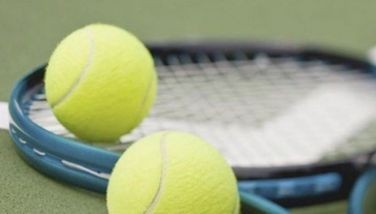There's no need to reinvent the wheel
As of this writing, the Philippine contingent to the 25th Southeast Asian (SEA) Games in Vientiane, Laos is struggling to finish among the top three in the race for the overall championship of the biennial event. With a number of sports disciplines scrapped from the program that have been the sources of gold medals like basketball and fencing, the Philippines finds itself hard pressed in subjective events like boxing, taekwondo, karate do and wushu where the outcome can very well be dictated by judges who may see the bouts in very different ways. In a sense, this struggle was anticipated because the Philippines knew way before the games kicked off last week that a substantial number of gold medal-rich events were to be missed in the 25th SEA Games due to financial constraints faced by Laos. An offer by the Philippines to help finance the staging of the
basketball competitions, where the Philippines is fancied to win the gold medal, was turned down by Laos, a founding member of the SEA Games’ precursor, the Southeast Asian Peninsular Games or SEAP Games. What compounded our problems was our
own inability to come together and unite as a country in preparing for this particular unique SEA Games which excluded sports that account for a good number of gold medals. As a result, as of Sunday noon, we were in a tight race with Laos for sixth spot with 11 gold medals apiece.
The Philippines had, however, more silver medals than Laos, 16 to four, and a greater
number of total medals won, 46 to 34. The Laotians, also as of Sunday, or after three days of competitions, are almost halfway to their goal of 25 gold medals with their 11-gold medal output. The Philippines however kept afloat through our taekwondo jins who captured four gold medals against the three they expected.
At the end of the taekwondo competitions, the jins had a 4-4-4 (gold, silver and bronze) medal count which is a marked improvement over its performance in the 2007 SEA Games in Nakhonratchasima, Thailand where the team brought home only one gold medal and four silver and seven bronze medals. Despite the meager number of gold medals, chef de mission Mario Tanchangco expected things to get better when Team Philippines vies in medal rich events such as athletics, swimming, billiards (where overwhelming favorites Bata Reyes and Django Bustamante however lost to unheralded cue artists), boxing, tennis (which accounted for the country’s lone Saturday gold medal late at night), wushu and judo, according to a GMA news TV report.
Aside from giving the Laotians a patriotic high, the Lao tourism industry and related
businesses in Vientiane have gained a major financial boost as thousands of tourists flock
to the capital city for the 25th SEA Games, according to the Vientiane Times.
The report says that most of the 7,000 hotel and guesthouse rooms, which the Vientiane
Hotel and Restaurant Association arranged to accommodate the visitors during the SEA
Games, were full. Businesses and economists estimate that one visitor spends at least US$100 a day while staying in Laos. Thus, more than $700,000 a day will be injected into the Lao tourism industry and related businesses in Vientiane, according to the Vientiane Times. The optimistic mood of Laotians all around is a far cry however from the weeping and gnashing of teeth that is expected should the Philippines fare lower
than third overall. I have said a zillion times and I’ll say it again: if we want to be taken
seriously by the international sports community and wish to attain a certain amount
of consistency in our performance in sports, we do need to formulate a multi-sector Master Plan for Sports. The Plan will provide in detail the role of the main stakeholders in sports and physical education: The Department of Interior and Local Government, the Department of Education, the Commission on Higher Education, the Philippine Sports Commission (PSC) and the Philippine Olympic Committee.
Whether they like it or not, these four agencies are key participants in any long-term sports development program that goes beyond scheduling games, tournaments and helping the PSC rule on travel tax exemptions.
There is no need to reinvent the wheel. We have the basic framework for sports
development, as I have repeatedly stated. We have the PSC law and the executive orders
creating the physical fitness and sports development councils from the national down
to the barangay levels. We have a Plan that was put together in 1995-1996, which should be updated. We have our biggest resource: our people, but they need to be part of a wellthought out plan and get organized from the barangay to the national levels. More on the Master Plan for Sports next week.
- Latest
- Trending




























